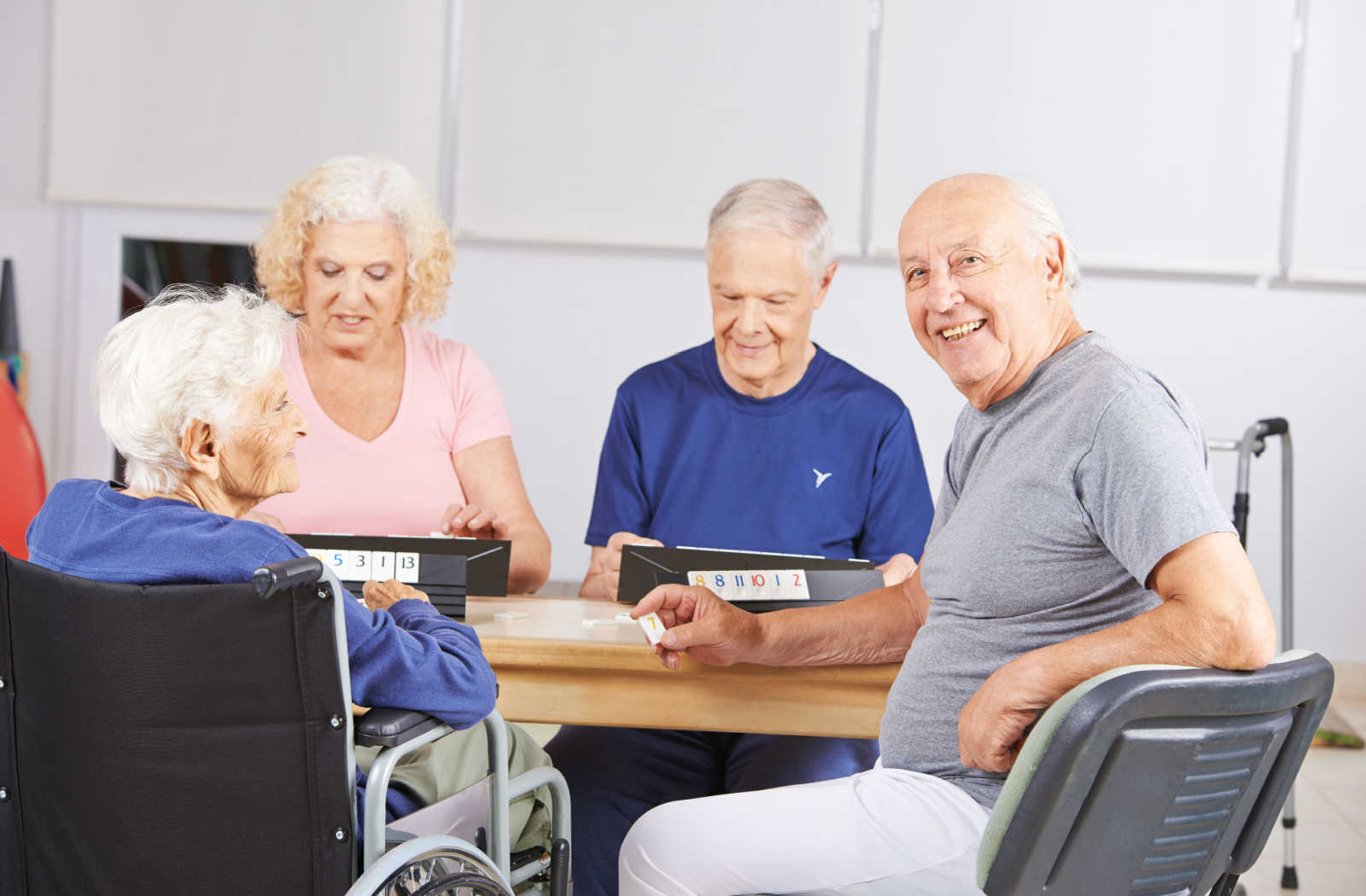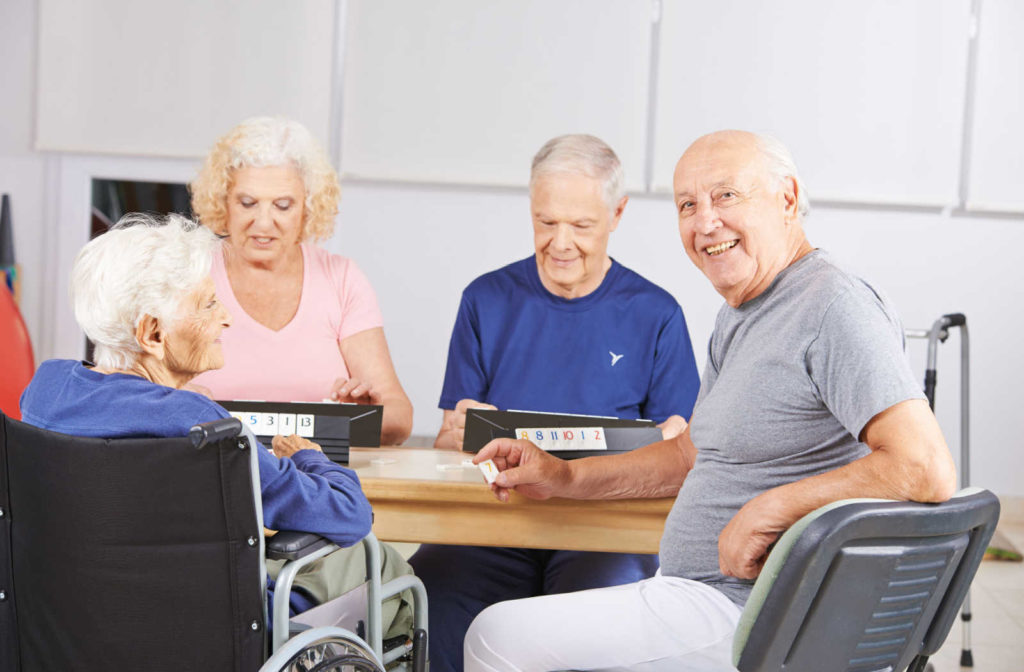Strategies for Care
Coping with memory loss can overwhelm older adults and their loved ones. You want to support them and ensure they receive the care they need. Fortunately, services and programs are available to help them thrive, from memory care to daily living assistance.
When your loved one relies on you to advocate for their well-being, it’s essential to have a plan for their care. Here are a few tips for loved ones and caregivers developing strategies for helping someone with memory loss.
Community Connections
People need human connections to stay healthy, physically and emotionally. Social isolation and loneliness can significantly impact seniors, as they are more vulnerable to isolation. Older adults often have more obstacles restricting their ability to build a social network, from mobility issues to limited transportation. They may also live far from family or friends.
Humans thrive when they have a community they can depend on to help in times of need or enjoy everyday. Face-to-face social interactions are crucial for our well-being, including decreasing depression risks.
A community is more than a place to live. Older adults need a variety of social opportunities and accessible exercise activities. Having everything nearby, whether it’s someone to chat with or a caregiver, ensures seniors feel connected.
Patient Communication
Communicating with loved ones with memory loss can be challenging. People with dementia or Alzheimer’s can have difficulty communicating verbally. They may struggle to find the right words, frequently lose their train of thought, or rely on gestures more than speaking.
Taking the time to listen can make a world of difference. Caregivers, family, and friends can help their loved ones feel supported by acknowledging their feelings and communicating with patience.
Older adults with memory loss can feel overwhelmed trying to communicate. Simplifying language can make conversations more comfortable. For example, you may focus on speaking clearly, asking one question at a time, and offering step-by-step instructions. In the later stages of memory loss, visual cues and nonverbal communication skills are helpful.
Establishing Routine
Developing a daily routine can benefit seniors with cognitive decline in many ways, from decreasing anxiety to encouraging independence. For example, simple tasks like folding laundry or working on a puzzle are chances to participate safely.
Repetition can help seniors feel comfortable and in control. The practice helps seniors maintain their skills and build their self-esteem. The predictable routine removes some of the stress of completing daily tasks, allowing seniors and their loved ones more opportunities to connect.
Their routine can include choices, giving seniors freedom without overwhelming them. For example, a caregiver may offer 2 meal options or 2 exercise activities. Seniors might select the day’s outfit from a handful of favorite clothes. The choice is up to them, but the choices offered keep the routine running as smoothly as possible.

Active Living
Any level of exercise, from light to strenuous, can help preserve memory in people with cognitive impairment. Unfortunately, older adults may have to overcome multiple health obstacles to keep moving. People with Alzheimer’s or cognitive impairment may struggle with coordination, endurance, soreness, depression, or lack of interest.
Offering gentle exercise options can make it easier for them to participate. Simple exercises include walking, sweeping, stretching bands, and the stationary bike. Additionally, seniors can build their muscle strength gradually or perform balance exercises to support their independence.
Balance problems or disorders impact almost 40% of seniors, affecting coordination and stability. The risk of falling can be a safety issue and cause anxiety or a fear of falling. Balance activities also support cognitive health, benefiting concentration, memory, and spatial cognition.
Simplifying Meals
Older adults with dementia have an increased risk of malnutrition. Their cognitive decline may make cooking or grocery shopping challenging and unsafe. Seniors also have changed eating habits, often due to decreased activity, appetite loss, or taste changes. People with Alzheimer’s may forget to eat or believe they’ve already eaten.
Simplifying meals can help seniors receive the nutrition they need without feeling overwhelmed. Some simple ideas include:
- Eating together: Modeling healthy eating habits is a chance to spend quality time with loved ones.
- Limiting distractions: Using basic table settings and eating in a space free of distractions can help older adults focus on their food.
- Offering options one at a time: Presenting one food item at a time can be less confusing and easier to stomach if they have appetite loss.
- Serving finger foods: Skipping the complicated utensils gives seniors independence, so they can eat at their own pace.
Grooming & Hygiene
Grooming and hygiene care benefit our health, from preventing illness to supporting self-esteem. Unfortunately, people with cognitive impairment may struggle to keep up with daily grooming. They may forget how or be unable to identify grooming items. Or, they may be uncomfortable having someone unfamiliar shave their face or help them bathe.
Loved ones can make grooming and hygiene easier by:
- Using favorites: Whether it’s their preferred toothpaste or longtime barber, keeping the same routine can help grooming tasks feel comfortable and safe.
- Modeling behavior: Perform simple tasks side-by-side, like combing your hair or brushing your teeth. Copying your actions allows them independence, but you’re still there to support them.
- Choosing the best time: Seniors with cognitive impairment are usually more active or energized in the morning, so completing crucial tasks earlier in the day may improve success.
Sleep Solutions
Chronic sleep problems are common in older adults. Seniors with Alzheimer’s can experience sleep disturbances and sundowning. They may feel agitated, anxious, confused, or disorientated, usually beginning at dusk and continuing throughout the night. Poor sleep at night can cause behavior problems and tiredness during the day.
Following a routine, exercising regularly, and limiting stimulation in the evening or night can help. Regular exercise takes their energy during the day, so they’re ready for rest. Creating a quiet, relaxing environment and avoiding distractions can be calming.
Consider Memory Care
Memory care can offer seniors with cognitive impairments the community and the resources they need to thrive. They can enjoy more activities and social engagement, maintaining their individuality while receiving comprehensive care.
At Minnehaha Senior Living, seniors can live life to the fullest with support from our compassionate staff and personalized care plans. Contact us or schedule a tour to learn about our memory care program.



